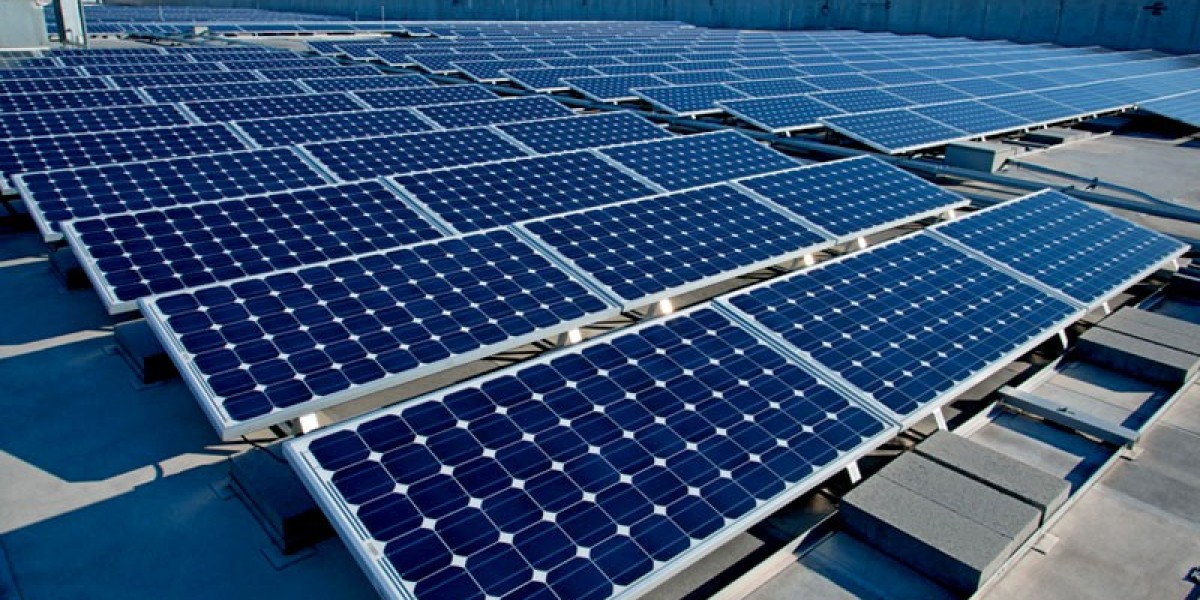The adoption of solar energy is rapidly growing among businesses in Pakistan. Implementing a solar system not only reduces energy costs but also supports environmental sustainability. This comprehensive guide solar system for businesses in Pakistan, from initial consultation through to maintenance, tailored specifically for businesses in Pakistan.
1. Introduction to Solar Systems for Businesses in Pakistan
Solar system installation has become a strategic move for businesses in Pakistan looking to manage costs and improve sustainability. With the country’s abundant sunlight, solar energy provides an opportunity for businesses to benefit from reliable and cost-effective power. Understanding the process and advantages of solar energy is essential for making an informed decision about solar system installation.
2. Initial Consultation and Energy Assessment
Site Evaluation
The first step in the solar system installation process is a site evaluation. A solar expert assesses the business premises to determine the best location for solar panels. This includes evaluating:
- Roof orientation and tilt for optimal sunlight exposure.
- Available space for panel installation.
- Shading issues caused by trees, nearby structures, or other obstructions.
This evaluation ensures that the solar panels will be positioned for maximum energy production.
Energy Consumption Analysis
A thorough energy consumption analysis is critical for designing the right solar system. This involves reviewing:
- Historical electricity usage data (utility bills).
- Peak demand periods for energy consumption.
This data helps in accurately sizing the system, ensuring it’s neither too large nor too small for the business’s energy needs.
3. Designing the Solar System
System Sizing
System sizing is a crucial step. Based on the energy assessment and site evaluation, the solar provider calculates the required size of the system. Key considerations include:
- Number of solar panels needed to meet energy demand.
- Selection of inverters and battery storage (if required).
Accurate system sizing ensures that the solar installation generates enough power to cover the business’s energy consumption without overspending.
Component Selection
The performance and durability of the solar system depend heavily on the quality of its components. Critical components include:
- Solar panels: High-efficiency, durable panels like monocrystalline are often chosen for their superior performance, especially in Pakistan's high-temperature conditions.
- Inverters: Convert the solar-generated DC electricity into AC for business use.
- Mounting systems: Strong, weather-resistant mounting systems are essential, particularly in regions with high winds or extreme weather.
4. Permits and Approvals
Regulatory Compliance
Businesses in Pakistan must adhere to local regulations for solar system installation. This includes obtaining necessary permits from municipal authorities and complying with local energy regulatory bodies. Ensuring all legal requirements are met helps avoid delays or fines during and after the installation.
Utility Interconnection
For grid-tied systems, approval from the local electricity utility is required. This approval allows businesses to:
- Feed excess energy back into the grid.
- Benefit from net metering, which can provide financial returns through credits on electricity bills.
Completing this step ensures that the business can take full advantage of the solar system’s potential.
5. Installation Process
Mounting System Installation
The installation begins with the mounting system, which supports the solar panels. In Pakistan, where high winds and dust are common, the mounting system must be:
- Sturdy to withstand environmental factors.
- Properly installed to ensure the long-term durability of the solar panels.
Solar Panel Installation
Once the mounting system is in place, the solar panels are installed. Key considerations during this step include:
- Positioning the panels for optimal sunlight exposure.
- Avoiding shading from nearby objects.
Proper installation of the panels ensures maximum energy generation and prevents potential issues like panel damage from wind or rain.
6. Electrical Wiring and Connections
Wiring
The solar system's wiring connects the panels to the inverter and battery storage (if applicable). High-quality wiring is essential for:
- Efficient energy transfer.
- Safety, minimizing risks of short circuits or electrical fires.
Proper wiring ensures that the system runs efficiently and safely for the long term.
Inverter Installation
The inverter is installed in a cool, well-ventilated area to prevent overheating. As the component that converts DC from the panels into usable AC electricity, proper installation is key to:
- Efficient energy conversion.
- Seamless system performance.
7. Testing and Commissioning
Initial Testing
After installation, the system undergoes initial testing to ensure all components function correctly. This includes:
- Verifying electrical connections.
- Testing the inverter and ensuring proper energy conversion.
- Checking that the system generates the expected power output.
Any issues identified during testing are resolved before the system goes live.
System Commissioning
Following testing, the system is officially commissioned. This includes:
- Activating the solar system.
- Providing training to the business staff on system operation and maintenance.
System commissioning ensures that the business can manage and monitor the solar system effectively.
8. Maintenance and Monitoring
Regular Maintenance
Regular maintenance is essential for ensuring the long-term performance of the solar system. This includes:
- Cleaning solar panels to remove dust and debris, which can block sunlight.
- Inspecting wiring and connections for wear and tear.
In Pakistan, where dust accumulation can affect panel performance, regular cleaning is especially important.
Performance Monitoring
Many modern solar systems come with monitoring software that allows businesses to:
- Track energy production in real-time.
- Detect issues early, such as a drop in power generation or system faults.
This ensures that the system is running efficiently and that any problems are addressed promptly.
9. Benefits of Solar Systems for Businesses in Pakistan
Cost Savings
One of the most significant benefits of solar system installation for businesses is the reduction in electricity costs. Solar energy provides:
- Lower utility bills, as much of the energy used comes from the solar system.
- Long-term financial savings, especially with rising energy prices in Pakistan.
Environmental Impact
Solar energy is a clean, renewable resource. By switching to solar, businesses:
- Reduce their carbon footprint.
- Contribute to environmental sustainability, enhancing their corporate social responsibility (CSR) profile.
Energy Independence
A solar system allows businesses to become more energy-independent. This reduces reliance on the national grid, providing:
- A stable energy supply, even during outages or peak demand periods.
- Greater control over energy costs.
10. Challenges and Considerations
Initial Investment
While the initial cost of solar system installation can be significant, businesses should consider:
- Financing options, such as loans or government incentives.
- The long-term savings that offset the initial investment, making solar a viable option for businesses.
Weather Conditions
Pakistan's weather, particularly high temperatures and dust, can affect panel performance. However:
- Choosing high-quality panels and components.
- Implementing a maintenance routine can mitigate these issues and ensure consistent performance.
Regulatory Hurdles
Navigating Pakistan’s regulatory framework can be complex. Businesses must:
- Ensure compliance with local regulations.
- Obtain necessary permits from relevant authorities.
Working with an experienced solar installation company helps streamline the process.
Conclusion
Solar system installation in Pakistan provides businesses with numerous benefits, from cost savings and energy independence to environmental sustainability. By following this guide, businesses can successfully implement solar systems that meet their energy needs and sustainability goals. Proper planning, quality component selection, and regular maintenance ensure that businesses get the most out of their solar investment.
Investing in solar energy not only reduces operational costs but also enhances a business’s environmental credentials, positioning it as a leader in sustainability. With the right approach, businesses in Pakistan can leverage solar power to achieve long-term success and contribute to a greener future.






